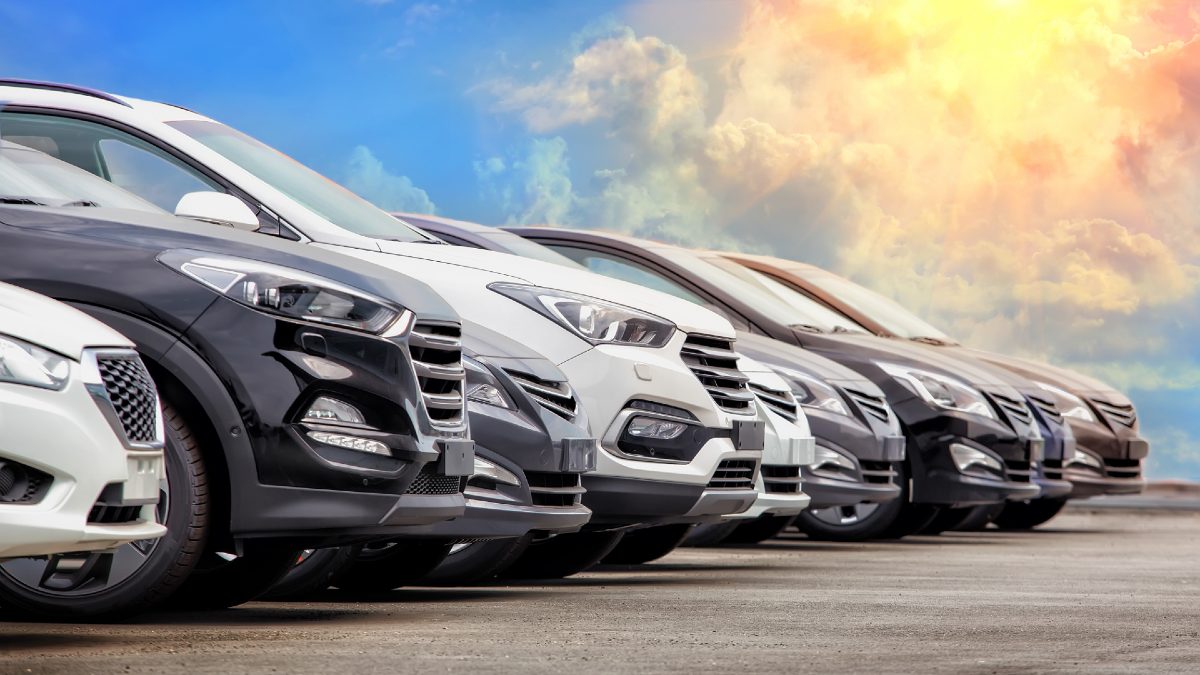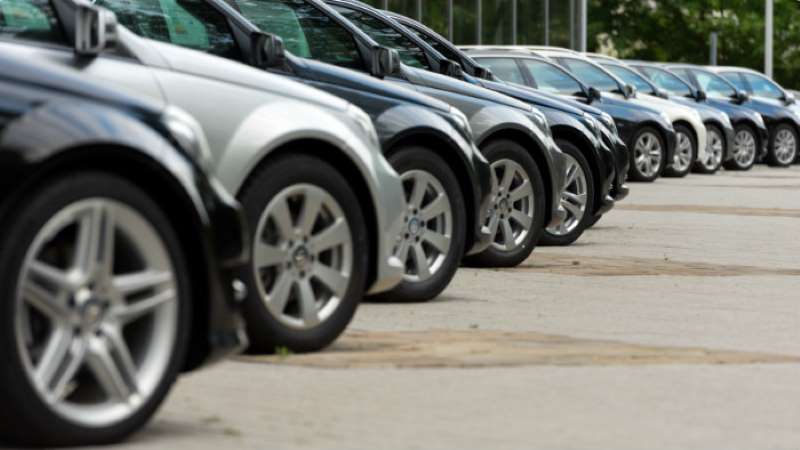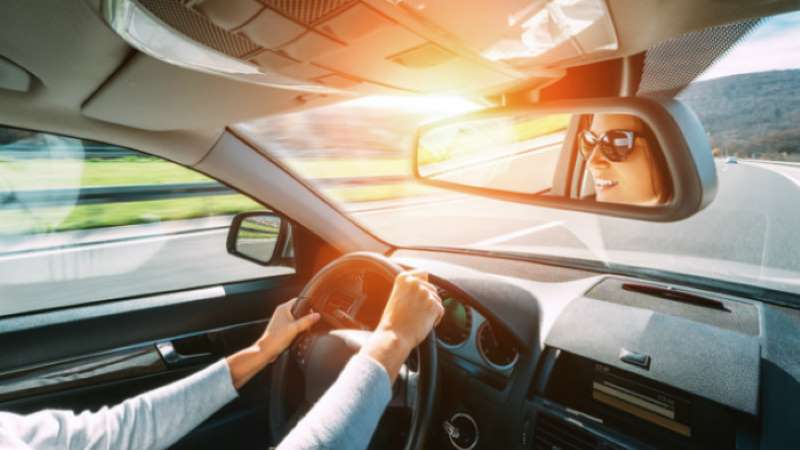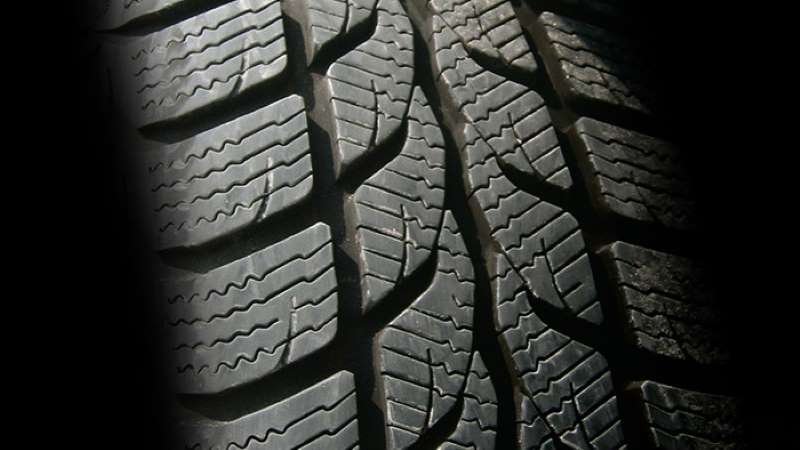If you're looking for a new car, there are different ways to pay, from buying outright to the various types of finance. If you can’t decide between leasing or buying your next new car, read on for the pros and cons to see which is right for you.
Advantages Of Leasing A Car
There are many options when it comes to running a car, so it’s important you find something that best suits you and your needs. While buying offers full ownership, there are many advantages to car leasing – fixed monthly costs and the choice of upgrading to a brand-new model every few years are just a few of these.
The benefits of leasing a car are:
-
Low, fixed-cost monthly payments.
-
Upgrade to a new car every few years.
-
Manufacturer’s warranty and tax included.
-
No need to worry about depreciation.
-
No need to sell the car on.
1. A New Car Every Few Years
If you like driving a new car every couple of years but don't have the cash to buy outright or settle existing finance agreements, leasing is the obvious choice. Leasing normally last between 2-5 years, so you can pick a different car every time you take out a new agreement.
You can choose between a wide selection of makes and models, too. From the bestsellers of Ford and Vauxhall to the premium badges of Audi and BMW, Vanarama offers car lease deals on a host of models.
Plus, as electric lease cars become more popular and emissions rules change, driving a new car every couple of years helps you stay ahead of the curve and save more money. Changing up your vehicle to keep emissions low will reduce your road tax, because the lower the CO2, the lower the tax cost.
You will also get access to the latest automotive technology by leasing the newest cars. This not only enhances the driving experience for you and your passengers but also ensures you have the most up-to-date safety features.
2. Lower Fixed Payments
Lease payments are fixed – you will make the same monthly payments for the duration of your agreement. The amount will be agreed upon before your agreement begins, so you'll always know how much to pay. This makes leasing a form of motoring that allows you to manage your money – especially if you add an optional maintenance package, which covers routine maintenance and tyre replacements, among other things.
Thanks to our excellent relationships with car manufacturers and dealerships, we can offer the best prices compared to our competitors. But if there’s a quote we can’t beat, we’ll give you £100 with our Price Promise.
3. Manufacturer's Warranty And Tax Included
All new lease cars come with a manufacturer's warranty, which normally lasts for 3 years or more. Most mechanical faults will be covered in this warranty, so you won't need to shell out. Other routine repairs and replacements can also be covered with a maintenance package.
Car leasing includes tax as part of the monthly payment, so you don’t need to stress about taxing your vehicle at all.
4. No Need To Worry About Depreciation
All cars will depreciate. This means any vehicle's residual value (how much it will be worth after a certain length of time) will decrease as you drive it. With leasing, however, the depreciation costs are already factored into your car rentals.
5. Avoid The Hassle Of Selling It Later
At the end of the lease term, you simply return the car to your lease company. You don't need to think about its resale value or how to get a good price from another buyer.
What To Consider When Leasing A Car
We want to be sure that our lease deals suit each customer and what they need from a car, so we’ve outlined the key points to be aware of when considering car leasing.
1. Monthly Payments Must Be On Time
If you miss 1 or more of your monthly lease rental payments, it may be considered a breach of your agreement. Missed rental payments could affect your credit score and the car could be removed from your possession.
Always contact the leasing company if you think you're going to miss a rental payment. We will come up with a solution that takes your financial situation into account.
2. The Car Must Be Kept In Good Condition
At the end of the agreement, your lease vehicle will be inspected by the dealer. We would never expect it to be returned in perfect condition, as you could have been driving for up to 5 years. But if the car has been seriously damaged, you will be responsible for the repair costs.
All leasing companies should follow the British Vehicle Rental and Leasing Association's (BVRLA) Fair Wear and Tear guidelines, so you won't have to pay for a minor scuff or light damage. However, if your car is returned with a large dent or an excessive scratch, you will be charged.
3. Charges For Exceeding Your Mileage Limit
Leasing agreements are calculated based on a car's residual value, which is its expected worth by the end of an agreement. The more miles you drive, the greater the vehicle will depreciate. If you exceed your agreed mileage, you will be charged for the additional depreciation which is priced at a specific pence-per-mile cost.
If you think you're going to go over your mileage allowance, contact the lease company so they can try and extend the deal for you. Or better yet, try to overestimate your mileage before the agreement begins so you don't get charged.
4. Cancellation Fees If Your Circumstances Change
If your circumstances change and you no longer need the lease car (or can't afford it), it can be expensive to get out of the agreement. The cancellation charge for leasing is normally 50% of the remaining monthly rental costs. So, if you're paying £300 per month and have 1 year left in your contract, the termination fee will be £1,800.
Speak to your leasing company if you can't afford the car anymore and they will help you work out what's best to do.
5. You Will Not Own The Car
Leasing is essentially another word for renting. You are only renting a new car for a set time and will not own it at the end of your contract.
However, that does mean you won't need to worry about expensive maintenance or depreciation costs. As all our lease cars are new and agreements last a maximum of 5 years, the car will usually be more reliable than one you've owned for 10 years. That's why it can be cheaper to lease a car, plus you can drive a shiny new vehicle every few years.
Advantages Of Buying A Car
1. No Mileage Limits
When you own the car, you won't be restricted by a mileage allowance. Drivers who go over 50,000 miles annually may be better off buying to avoid excess charges.
However, some lease agreements can exceed the 50,000-mile limit, so if you don't want to buy a car, contact the leasing company who will do their best to work something out for you.
2. Modifications
If you want to modify your car's performance or change its look, you should buy the car. With leasing, the vehicle needs to be returned in the same condition when you first received it, minus the expected wear and tear. With buying, your car doesn't have to stick to the original factory specifications – you can customise it however you like.
3. Resale Or Trade-In Value
You can sell your car and get some money back if you're tired of your current vehicle. You likely won't get the full amount, but it can help you put a little more cash towards another car.
You could also trade into another dealer and get money off a finance deal – such as a Personal Contract Purchase (PCP) agreement – but you'll make more money than selling it privately.
4. No Credit Checks If You Pay Upfront
The lease company will need to check your credit score to make sure you can afford the payments. If you have a poor credit history, then you may be offered a higher interest rate. However, when you buy outright, you won't need to pass a credit check and can hand over the cash without your financial history being looked at.
5. You Own The Vehicle
Buying a car outright means that you become the legal owner, if you can afford to pay the entire amount upfront. It's yours to keep until you sell it or it's no longer roadworthy.
However, bear in mind that when you own a car, you are solely responsible for the additional costs. You need to pay for road tax, tyres, MOTs, servicing and maintenance (which will get more expensive over time). Car ownership may only be beneficial if you're able to pay these costs upfront.
Plus, when your vehicle is too expensive to repair, you will need to replace it, which can be a surprise cost if you weren't already aware of the damage.
Considerations When Buying A Car
1. Large Outright Cost Or Higher Monthly Payments
Private sellers may want you to pay the full cost of the car on the spot. Expect to pay thousands of pounds if you purchase a car, which is a lot to hand over all at once.
As an alternative, you could get a personal car loan, but the monthly payments will generally be higher than the cost of a lease contract.
2. Uncertainty About The Previous Owner
If you buy a car from a private seller, you risk some uncertainty with the vehicle's history. Your purchase is less likely to be protected, so if you're ripped off it will be hard to get the money back.
If you do buy privately, ensure to carry out thorough checks: do a full test drive and always go through the car's paperwork. If it's a used car, an HPI check is also recommended.
3. Maintenance Costs Will Increase
Once your car's warranty is up, you are liable for repair costs. As your car gets older it will need additional maintenance, which can be expensive. Don't forget the cost of annual servicing, MOTs and tyre replacements, too.
You will also need to spend time finding a garage that will deliver high-quality work on time (so you aren't without your car for long), plus shopping around for a fair estimate.
4. Unpredictable Depreciation Value
All cars depreciate differently and you can't always accurately predict how much your vehicle will be worth in the years to come. New cars can depreciate between 20-60% over a 3-year period but this isn't exact, so you might find yourself losing out when it comes to selling.
5. You Need To Sell It Yourself
If you own your car but change your mind after a couple of years, you will be tasked with finding a buyer. It can be a hassle to sell your car privately, but it is the best way to make the most money. If you want a quick sale, you will need to reduce the price or trade in your vehicle.
Is It Cheaper To Buy Or Lease A Car?
If you prefer driving a new car, leasing is cheaper because you only drive the vehicle for a set time and don't pay for its full value. Lease agreements are usually cheaper than personal loans, too, plus you can add a maintenance package to your monthly rentals for added peace of mind.
If you buy a used vehicle, it can be cheaper than a lease – if you have the cash to hand. Don't forget to factor in potentially expensive maintenance costs, though.
Should I Buy Or Lease My Car?
If you like driving a new car every few years and you're willing to keep it in good condition, leasing is a great choice. On the other hand, you should consider buying if you want to own the car and modify it.
In the current economic climate, certainty is something everyone wants. Before you commit to a lease, you'll receive a breakdown of exactly what the monthly costs are and when you'll need to pay them – there are no hidden costs.
Leasing a car with Vanarama guarantees you will get a brand-new motor that is less likely to require any work or maintenance. Your car won't need an MOT for the first 3 years of its life and will come with a full manufacturer's warranty to cover that same period. Road tax is also included in the monthly rental payments so you won't have to worry about that either.
More On Leasing
Find out more about how leasing a car works by taking a look at our handy leasing guides. If you're looking for your next car, check out our latest cheap car leasing deals or view all of our car leasing deals.






